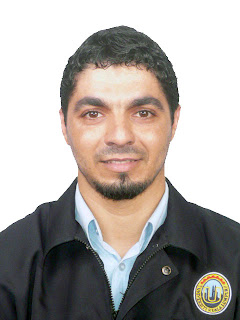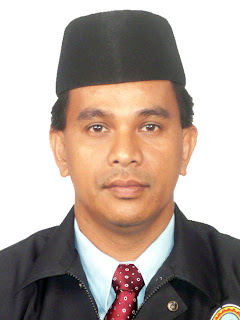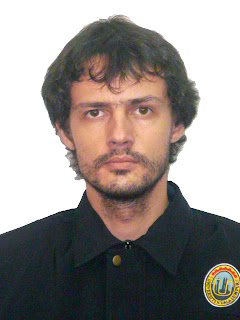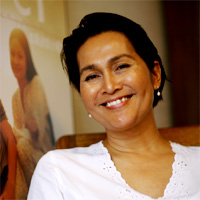
















Many things have happened in the past 12 months and as our nation celebrates its 52nd birthday, it is time for us to re-examine ourselves.
I WRITE this in a hotel room in Jakarta, a couple of weeks after Indonesia celebrated its 64th Independence Day. In my short three-day trip here, I found our neighbours to be very proud of their heritage, culture and achievements.
While some of us Malaysians tend to thumb our noses at Indonesians just because our only contact with them is manual labourers or maids, the republic is actually very progressive, and with a thriving democracy.
Like us, their society is not perfect; the rich are very rich and the poor are extremely poor.
However, a growing middle class is changing Indonesian society slowly but surely.
Being away from home always makes me more aware of my Malaysian citizenship, and the pride I feel in being a citizen of a blessed nation.
The advances we have made in the past 52 years is nothing short of a miracle, as the then Malaya’s creation more than five decades ago was a rushed decision that was not welcomed by everyone.
The main reason the British granted independence to Malaya then was that it no longer had the political stomach to rule its colonies on the other side of the world.
Many non-Malays in Malaya then had reservations about being independent from the “mother country”, unsure about how the Malays would treat them.
Some Malays were unhappy with the compromise agreement for independence – everyone was to be granted citizenship.
However, as history has shown, we have done not too badly despite all the original reservations and doubts.
Yes, like Indonesia, our nation has its problems, but just like our neighbour, we have advanced – and in my opinion advanced at a slightly quicker pace.
Thirty years ago when I first left the country to study in England, I always found it difficult to tell people where Malaysia was. My answer had always been “between Thailand and Singapore”.
However, during my job-related travels in the past 15 years, I find that this description is no longer needed. Everywhere I have been to – whether in Europe, South and North America, Africa, or even Siberia – they know of Malaysia.
Sometimes, they know of us for the right reasons but there have also been times they know of Malaysia for all the wrong reasons.
But the nation must put its citizens and their joy first. It is pointless to have a famous country, but its people an unhappy and miserable lot.
That is something our politicians must realise – Malaysia is for all of us, not just for some.
It’s their job to ensure that we are generally happy and, more importantly, proud to be Malaysians.
To mark our 52nd Merdeka, I have drawn up three lists which I call “The Good, the Bad and the Ugly of Malaysia” based on what has happened in the past 12 months.
The Good
1. We are still a nation and able to talk about things without reaching for guns to resolve an issue.
2. The Government has finally agreed to do away with having all of us declare our ethnic origins when filling in official forms. This will make us all feel more Malaysian because we no longer focus on our differences but on our similarities.
3. We are now closer to getting more transparent in the administration of the 14 governments that make up our federation with the setting of the Key Performance Index and Key Result Areas to ensure more transparency and quicker delivery of service to the people.
4. We have not been hit by any massive natural disaster and therefore we are still the lucky nation that our first Prime Minister Tunku Abdul Rahman said we were. The Tunku had said Malaysia was a lucky nation “because we have no earthquake, typhoon or volcano disaster”.
5. After six by-elections in less than a year, we all still went back to work the next day despite some of them being quite bad tempered and highly charged events.
The Bad
1. The return of mob politics where demonstrators take to the streets to confront the authorities or just to forment trouble. Both sides of the political divide see such moves as legitimate political tactics.
2. The only way we Malaysians seem to pass news to each other is to forward unsubstantiated allegations – whether via SMS, e-mail, or Twitter.
3. The blame game continues across the political divide. The 12th general election was more than 18 months ago but we seemed to have not moved on, stuck as it were in a political twilight zone.
4. Most urban residents do not even know who their neighbours are because we are too caught up eking out a living.
5. Crime is a major headache for every Malaysian and soon we may be afraid even to leave our houses.
The Ugly
1. Racial polarisation is getting worse and it seems we do not want to do anything about it except to complain. The fires of distrust between the communities is being stoked by various politicians with an agenda of their own.
2. Some ministers and other political leaders are out of touch with the reality on the streets. They continue to believe that they must dictate the way we think because they know what is best. Such people are irrelevant.
3. Many Malaysians continue to believe that everything done in Singapore, Hong Kong or India is correct and anything done in Malaysia is wrong. This is a self-fulfilling prophecy and a defeatist attitude.
4. Ancient and draconian laws continue to be used; such legislation needs to be rid of if Malaysian society were to advance even faster.
5. We are probably the worse road users in the world and our driving etiquette has not improved despite all sorts of campaigns at all levels.
The lists are not exhaustive but are in my personal opinion important matters that must be resolved before we celebrate our 53rd national day.
■ Deputy Executive Editor Wong Sai Wan will celebrate Aug 31 by feeling proud to be a Malaysian, but one who is aware of his own weaknesses.
Source: The Star
AFTER reading the report “All-round support for race-less forms proposal” (The Star, Aug 19), I was prompted to write about national unity and race-less forms. The question is how serious are we really about achieving this 1Malaysia concept?
The Government now acknowledges that there is ethnic polarisation and that is why the Prime Minister has to promote the vision of 1Malaysia.
It is the latest initiative to promote unity as, in the past, we have had the Rukunegara, New Economic Policy and the Wawasan 2020.
However, we do not see this 1Malaysia concept being promoted in the education sector. In the early 60s, the first Education Minister Tan Sri Khir Johari introduced the 001 cards to the school system which still exist today. The system requires one to state his or her race and religion in the card.
The school register and various other forms still require the filling in of one’s race and religion.
Even after the introduction of the 1Malaysia concept, the latest co-curiculum forms require the breakdown of the students’ race, just to determine how many students of a particular race are interested to take part in certain uniformed units, games and clubs.
The list can go on, but my point is if the Education Ministry continues to pursue and implement programmes based on ethnicity and conveniently forgets about 1Malaysia and the Ministry’s blueprint on integration of races, how are we going to achieve the 1Malaysia concept?
If the Government does not consider this overgrown concern, its credibility on the 1Malaysia concept will be questioned.
It will only create the impression that 1Malaysia is a dream concept of the Prime Minister.
If the Government is incapable of acting earnestly and decisively in the interest of racial unity, the 1Malaysia concept will not serve any purpose.
As such, I feel strongly that all of us must commit sincerely to transform the 1Malaysia concept into reality by taking the first step of doing away with the requirement of having to state one’s race or religion in all official forms and documents.
Consider this proposal to be a gift for all Malaysians in celebrating the 52nd National Day.
S. SUNDRALINGAM,
Ipoh.
 f your buddies, who lead the first batch of Portuguese to Melaka. The answer is Lopez de Sequira (spelling might be wrong) which I think most people will not remember. Many people detest and don’t care about history. Even the Melaka government named a tower after a guy who attacked Melaka, Taming Sari. Moral of the story, we must attacked Melaka in order to get our names be permanent remembered with a tower or a road, etc. XD
f your buddies, who lead the first batch of Portuguese to Melaka. The answer is Lopez de Sequira (spelling might be wrong) which I think most people will not remember. Many people detest and don’t care about history. Even the Melaka government named a tower after a guy who attacked Melaka, Taming Sari. Moral of the story, we must attacked Melaka in order to get our names be permanent remembered with a tower or a road, etc. XDSource: The Star
We want to live for more than work. We like to feel that we are living for more than just ourselves. Corporate social responsibility initiatives make a company more attractive to us, creating the perception that by not just living selfishly, employers are somehow better people.
THE economic downturn has thrown up many challenges to employers. One of the most publicised issues is retrenchments necessitated by cost-cutting. Employers know that there is a fine balance – they have to be mindful of the immediate need to keep the business afloat while ensuring good talent is retained.
With this in mind, the ability to understand the needs of employees – keeping them happy and motivated – is more important than ever. Globally, surveys have shown that employers struggle when it comes to the younger work force.
Popularly known as “Generation Y” or “millennials”, they include those born between 1978 and 1988.
My generation is apparently a bit of a conundrum for senior management. Why is this so? Are we really that different and difficult to decipher?
In short, no – provided that employers take time to understand the context in which we grew up, and the generational uniqueness in which we continue to work and live.
We millennials in the nascency of our careers are accustomed to living life at breakneck speed. Unconvinced? Consider the following.
Things which used to take generations (or at least one generation) to change – institutional structures, economic cycles, industrial shifts, linguistics, and socio-cultural norms now happen in a matter of years, sometimes more than once.
Since we’ve moved into the workplace, we millennials have experienced two major market crashes, the biggest single terrorist attack in history, two wars, two deadly pandemics and the bursting of no less than three global economic bubbles (dot-com, property and credit).
Technological obsolescence occurs in the blink of an eye. We have collected cassettes, CDs, minidiscs and now digital music. Innovation used to be permitted an occasional breather – for millennials, essential gadgets such as the Discman, iPod, mobile phone, computers and gaming platforms rarely last longer than two years.
And I haven’t even mentioned the fastest-changing medium of all – the Internet with its blogs, Friendster, mySpace, Facebook and Twitter.
Business owners and senior management from the “baby boomer” and “Generation X” era need to understand that the world that we millennials have grown up in has shaped the way that we think, live and work. In Malaysia, it is estimated that Generation Y account for a sizable chunk of the workforce at around 40%.
Broadly speaking, here are a few generalisations of what makes Generation Y tick.
> We look at the concept of a career differently. Generation Y has the highest number of qualified, skilled employees of any generation in history. However, millennials generally have a reduced sense of urgency in forging a career path.
Sociologists partly attribute this to the increased comfort level: working is no longer a matter of survival, and most graduates move back in with their parents after university, affording them the luxury of taking time to choose a job that they really enjoy.
Greater opportunities for success beyond the realm of traditional professional boundaries; huge success stories like Facebook were born straight out of college dorm rooms also contribute to the attitude that building a career can wait.
The concept of taking a year out to travel, experience new things or just relax is no longer the big black mark on a resume that it used to be.
> Work-life balance is not what you think it means. When it comes to keeping millennials happy at work, the concept of “work-life” balance is almost antediluvian. Merely being able to get off work early is not enough for Generation Y. In fact, studies show that millennials are happy to work late, provided that they enjoy their work.
Employers who display trust and grant flexibility to employees – not requiring them to rigidly work, work and work throughout the work day – in turn gain more productive and loyal employees.
Generation Y appreciates being allowed to take short breaks, come in slightly later, enjoy long lunches, or even work from home, without being judged. As long as the quality and quantity of their work is not affected, why should this concern an employer?
Surveys confirm that millennials who are granted flexibility during the week do not even mind being in touch with their work (such as by Blackberry) through weekends. Studies show that millennials view their work and life as a merged identity and look negatively upon employers who are too straight-laced.
The fun and social side of office life is valued by Generation Y, and we tend to be more willing to work hard in an office environment that is permissive of humour, concepts such as casual Fridays, office socials and is not all work and no play.
> We want to live for more than work. We like to feel that we are living for more than just ourselves. Corporate social responsibility initiatives make a company more attractive to us, creating the perception that, by not just living selfishly, the employers are somehow better people.
Statistically, more than 50% of millennials would prefer to work for a company that provides opportunities for employees to actively give back to the community.
> We thrive on overcoming challenges. Generation Y has grown up in the midst of the greatest knowledge boom in history – the Internet. It is irrefutable that information has been more widely accessed by millennials compared to previous generations.
Experts opine that the competitive and fast-paced world of millennials has evolved us into better problem solvers, able to handle big decisions quickly and properly, and even cope with failure better.
> Technology is crucial to us. We are the first generation to have built social networks online. We develop close friendships based on online interaction. We blog, tweet and update our Facebook status.
Access to technology is important to us. One consistently common theme that arises in every workplace survey done around the world is this: millennials are unhappy and unmotivated when the employer blocks access to the Internet or social networks.
Employers who do so are viewed as lacking the trust and flexibility mentioned previously.
Our grasp of technology is not purely for personal reasons – our ability to find information that is relevant to our work in a very short time enables us to be more efficient, and results in a more productive and successful company.
The above are just broad brush strokes of the Generation Y picture. Each employee is unique, and companies will need to take into account local cultures and their own corporate agenda when formulating employment policies.
But employers need to acknowledge the importance of making a conscious effort to understand and adapt to the mindset and needs of the millennials. After all, in time, we will be the ones running your businesses.
> The writer is a young lawyer. Putik Lada, or pepper buds in Malay, captures the spirit and intention of this column – a platform for young lawyers to articulate their views and aspirations about the law, justice and a civil society. For more information about the young lawyers, visit www.malaysianbar.org.my/nylc.
WHY march, when the government has said that it will review the Internal Security Act? Why march, when there are other very cosy ways of giving your views and feedback?
One would understand if these were questions posed by nine-year-olds. But they are not. They are questions posed by the prime minister of this nation we call our home. Answer we must. So, why?
Because thousands who died while in detention cannot march or speak any more. That is why others have to do it for them.
Because persons in the corridors of power, persons who have amassed tremendous wealth and live in mansions, and persons who are in the position to right wrongs but won’t, continue to rule our nation with suffocating might. And they certainly would not march. They would prevent others from marching.
Because the have-nots, the sidelined, the oppressed, the discriminated and the persecuted have no effective line to the powerful.
Because the nice ways have been tried ad nauseam for decades, but have fallen on deaf ears.
Because none of the major recommendations of Suhakam (including on peaceful assembly), or of the commissions of inquiry, has been implemented. Because the proposed Independent Police Complaints and Misconduct Commission (IPCMC) is not in sight, while corruption and insecurity live in every neighbourhood; and (despite reasoned views expressed ever so nicely in opposition) Rela (people’s volunteer corps) is being brought in to make matters even worse.
The proponents in “Su Qiu” (remember them?) were not marchers. In fact it is hard to find nicer ways than “su qiu”, because the term means “present and request” or “inform and request”. In terms of putting forward a view or a request, it is the height of politeness. Yet they were labelled “extremists” – they who did not march.
And now you ask, why march?
Because you gave non-marchers a false name! You called them the “silent majority”, who by virtue of their silence (so you proudly argued with twisted logic) were supporters of government policies since they were not vocal in raising objections. You claimed to be protecting the interest of the “silent majority”. Now some of them do not want to be silent anymore, and you are asking why?
Yes, because double standards and hypocrisy cannot be covered up or explained away forever; and incompetence cannot be indefinitely propped up by depleting resources.
Because cronyism can only take care of a few people, and the rest will eventually wake up to realise the repeated lies that things were done in certain ways purportedly “for their benefit”.
Because the race card, cleverly played for such a long time, is beginning to be seen for what it really is – a despicable tool to divide the rakyat for easier political manipulation.
Because it does not take much to figure out that there is no good reason why Malaysia, a country with abundant human resources and rich natural resources, does not have a standard of living many times higher than that of Singapore, an island state with no natural resources and that has to import human resources from Malaysia and elsewhere.
Because, in general, countries that do not persecute marchers are prosperous or are improving from their previous state of affairs, and those that do are declining.
Because Gandhi marched, Mandela marched, Martin Luther King marched, and Tunku Abdul Rahman marched.
Because more and more people realise that peaceful assemblies are no threat at all to the security of the nation, although they are a threat to the security of tenure of the ruling elite.
Because politicians do not mean it when they say with a straight face or a smile that they are the servants and that the people are the masters. No servant would treat his master with tear gas, batons and handcuffs.
Because if the marchers in history had been stopped in their tracks, places like India, Malaysia and many others would still be colonies today, apartheid would still be thriving in South Africa, Nelson Mandela would still be scribbling on the walls of Cell 5, and Obama would probably be a slave somewhere in Mississippi plotting to make his next midnight dash for the river.
And because liberty, freedom and dignity are not free vouchers posted out to each household.
They do not come to those who just sit and wait. They have to be fought for, and gained.
And if you still want to ask: why march; I can go on and on until the last tree is felled. But I shall obviously not.
I will end with the following lines from one of the songs sung in the 1960s by civil rights marchers in the US, without whom Obama would not be able to even sit with the whites in a bus, let alone reside in the White House:
“It isn’t nice to block the doorway
It isn’t nice to go to jail
There are nicer ways to do it
But the nice ways have all failed
It isn’t nice; it isn’t nice
You’ve told us once, you’ve told us twice
But if that’s freedom’s price
We don’t mind …”
Somewhere in the month of May, I found out that I was offered JPA scholarship for France Engineering. I was shocked to see that. This is because I applied for Engineering Course and was hoping to further my studies to English-speaking countries and a friend of mine who get the similar scholarship was notified months earlier than I was.
Fear came over me as the need to learn a new language is not easy as language has never been my cup of tea. Furthermore, I was not prepared at all to get this course.
With the help of ReCom.org, I found that France Engineering Course has two batches. First batch, the scholars will do their foundation & degree (Masters, if they are lucky) at France and another which is the one I am taking is 20 months of preparatory program before going to France. However, the fear is still there.
July 12 was the day I enrolled in Malaysia France Institute (MFI), the place where I am going to studying my foundation. The first week which is the orientation week has its ups and downs. I met many new friends like Cyril who is an Iban, Akmal Ikhwan the Johorian, Ariff the Selangorian, Ihsan the local Bangi and Hazwan the crazy guy from Seminyih.
Now, after a few weeks, I think I am getting the hang of it. I THINK! As expected, I am slow in picking up French due to the fact that I use my right mind more than my left one. Still, with perseverance, I hope that I will succeed in learning it. Basic Electricity, Physics & Mathematics are interesting. I learn a lot especially in Maths in finding the origin of formulas. Basic Electricty’s pop quiz was kinda tricky.
Whether I will succeed or not, it will be known sooner or later.

